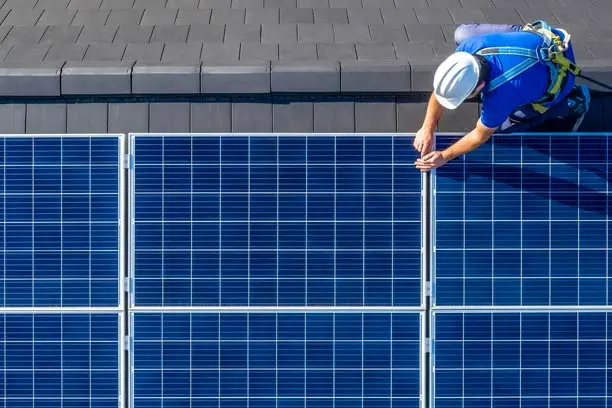Do Solar Panels Increase Your Home’s Value?


Solar panels are an increasingly popular investment for homeowners across the country because they offer a variety of benefits, most notably saving on energy costs and moving toward greener forms of energy consumption. If you’re considering investing in solar panels, you may also be wondering if the installation will increase the value of your home.
If you’re like most homeowners, you have a long list of potential home improvement projects that will add value to your home. Solar power is just one of many options, so it’s important to look at all the ways it can bring value to your life. To determine the worthiness of the project, it may help to look at not only the monthly cost savings from generating energy but also the impact that solar panels can have on your home value.
Solar panels are a selling point for many buyers and can help in the sales process. According to the National Renewable Energy Laboratory, homes in California with solar panels sold 20% faster compared to those without solar energy. There isn’t significant data from elsewhere in the country, but as solar panels become more affordable and widespread buyers may be looking for that additional feature.
In addition to helping your home sell more quickly, you may also receive a higher price for it. A recent Zillow study found that homes with solar installations sell for about 4.1% more than homes without. Solar panel appraisal value varies widely — we’ll get into why — but this general increase in price can help recoup the cost of installing solar panels.
It’s difficult to determine exactly how much the installation of solar panels impacts your property value. It all depends on a variety of factors.
This is the one of the biggest factors at play when determining how much value the system can add to your home. If the panels are leased or subject to third party power purchase agreement (PPA), they may be counted as personal property — like your furniture — which does not stay with the home. In that case, the panels wouldn’t be appraised as part of the value of your home.
If the system is financed, there may be a lien on panels that means the solar panel system cannot be appraised as part of the home without additional steps. The only way to guarantee that the panels will be included in a home appraisal is if you own them outright.
How much does the system do to offset your energy costs? If you have a high level of energy output, your system is likely worth more.
The age of the system can also impact its value. Just like the age of a roof, HVAC system or appliances, the age of a solar panel system can be a positive or a negative for buyers. An older system may suggest repair and/or replacement costs that could deter them.
Your community may have a large impact on the value your solar panels add to your home. The first and most obvious reason is the amount of sunlight they receive will impact their value. If you live in a generally cloudy location, the appraisers and potential buyers will likely see less value in having a solar panel system.
The prevalence of systems and cost of new systems in the area can also impact the appraised value. If they are widespread or relatively inexpensive to have installed, your system may not be appraised as highly.
Low electrical costs in your area can bring down the appraised value of a system, as potential buyers don’t see that it will impact their monthly cash flow as much as in areas where the cost of electrical energy is higher.
Finally, the real estate agent or company’s familiarity and comfort level with solar can also impact the appraised value. Some just don’t understand how to value solar panels, so it’s important to ask about their level of experience as you look for a realtor to help sell your house.
Investing in solar panels is just one of the many ways you can protect your home, your livelihood, your family and your future. Talk with a Farm Bureau agent today about your insurance coverage.